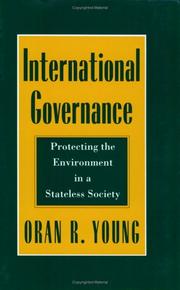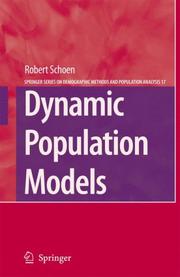| Listing 1 - 10 of 1119 | << page >> |
Sort by
|
Book
Year: 2020 Publisher: Frontiers Media SA
Abstract | Keywords | Export | Availability | Bookmark
 Loading...
Loading...Choose an application
- Reference Manager
- EndNote
- RefWorks (Direct export to RefWorks)
This eBook is a collection of articles from a Frontiers Research Topic. Frontiers Research Topics are very popular trademarks of the Frontiers Journals Series: they are collections of at least ten articles, all centered on a particular subject. With their unique mix of varied contributions from Original Research to Review Articles, Frontiers Research Topics unify the most influential researchers, the latest key findings and historical advances in a hot research area! Find out more on how to host your own Frontiers Research Topic or contribute to one as an author by contacting the Frontiers Editorial Office: frontiersin.org/about/contact
environment human health --- air quality --- marine environment --- circular bioeconomy --- remediation and restoration
Book
Year: 2020 Publisher: Frontiers Media SA
Abstract | Keywords | Export | Availability | Bookmark
 Loading...
Loading...Choose an application
- Reference Manager
- EndNote
- RefWorks (Direct export to RefWorks)
This eBook is a collection of articles from a Frontiers Research Topic. Frontiers Research Topics are very popular trademarks of the Frontiers Journals Series: they are collections of at least ten articles, all centered on a particular subject. With their unique mix of varied contributions from Original Research to Review Articles, Frontiers Research Topics unify the most influential researchers, the latest key findings and historical advances in a hot research area! Find out more on how to host your own Frontiers Research Topic or contribute to one as an author by contacting the Frontiers Editorial Office: frontiersin.org/about/contact
Science: general issues --- Physical geography & topography --- environment human health --- air quality --- marine environment --- circular bioeconomy --- remediation and restoration --- environment human health --- air quality --- marine environment --- circular bioeconomy --- remediation and restoration

ISBN: 1501711393 9781501711398 0801429722 9780801429729 0801481767 9780801481765 Year: 2018 Publisher: Ithaca, NY
Abstract | Keywords | Export | Availability | Bookmark
 Loading...
Loading...Choose an application
- Reference Manager
- EndNote
- RefWorks (Direct export to RefWorks)
How can the global environment be safeguarded in the absence of a world government? In the vanguard of efforts to address this critical question, Oran R. Young draws on environmental issues to explore the nature of international governance. Young's analysis invokes the distinction between "governance," a social function involving the management of interdependent individuals or groups, and "government," a set of formal organizations that makes and enforces rules.
Social ecology --- Natural resources --- Environmental policy --- Ecology, Social --- Environment, Human --- Human ecology (Social sciences) --- Human environment --- Social sciences --- International cooperation.
Book
ISBN: 9789025958626 Year: 2008 Publisher: Kampen Ten Have
Abstract | Keywords | Export | Availability | Bookmark
 Loading...
Loading...Choose an application
- Reference Manager
- EndNote
- RefWorks (Direct export to RefWorks)
Political philosophy. Social philosophy --- Social ecology --- Ecology, Social --- Environment, Human --- Human ecology (Social sciences) --- Human environment --- Social sciences
Book
Year: 2020 Publisher: Frontiers Media SA
Abstract | Keywords | Export | Availability | Bookmark
 Loading...
Loading...Choose an application
- Reference Manager
- EndNote
- RefWorks (Direct export to RefWorks)
This eBook is a collection of articles from a Frontiers Research Topic. Frontiers Research Topics are very popular trademarks of the Frontiers Journals Series: they are collections of at least ten articles, all centered on a particular subject. With their unique mix of varied contributions from Original Research to Review Articles, Frontiers Research Topics unify the most influential researchers, the latest key findings and historical advances in a hot research area! Find out more on how to host your own Frontiers Research Topic or contribute to one as an author by contacting the Frontiers Editorial Office: frontiersin.org/about/contact
Science: general issues --- Physical geography & topography --- environment human health --- air quality --- marine environment --- circular bioeconomy --- remediation and restoration

ISBN: 1280902566 9786610902569 1402052308 1402052294 Year: 2006 Publisher: Dordrecht : Springer,
Abstract | Keywords | Export | Availability | Bookmark
 Loading...
Loading...Choose an application
- Reference Manager
- EndNote
- RefWorks (Direct export to RefWorks)
Dynamic Population Models is the first book to comprehensively discuss and synthesize the emerging field of dynamic modeling, i.e. the analysis and application of population models that have changing vital rates. Incorporating the latest research, it includes thorough discussions of population growth and momentum under gradual fertility declines, the impact of changes in the timing of events on fertility measures, and the complex relationship between period and cohort measures. Recently developed models for the analysis of changing mortality are examined, and generalizations of Lotka’s fixed rate stable population model are developed and applied. The book is well organized and clearly written so that it is accessible to those with only a minimal knowledge of calculus. It begins with a review of fixed rate population models, from the basic life table to multistate stable populations. The process of convergence to stability is described, and the regularities underlying change in the size and composition of any population are explored. Techniques for estimating rates from multistate population distributions are presented, and new multi-age, multistate dynamic models are developed. Building on the logical closure of demographic models and the close relationship between population stocks and flows, the book sets forth the latest approaches for capturing population change in a world experiencing profound demographic transformations.
Population --- Human ecology. --- Mathematical models. --- Ecology --- Environment, Human --- Human beings --- Human environment --- Ecological engineering --- Human geography --- Nature --- Social aspects --- Effect of environment on --- Effect of human beings on
Book
ISBN: 0720482569 Year: 1973 Publisher: Amsterdam : Noord-Hollandsche uitgeversmaatschappij,
Abstract | Keywords | Export | Availability | Bookmark
 Loading...
Loading...Choose an application
- Reference Manager
- EndNote
- RefWorks (Direct export to RefWorks)
Human ecology. --- Human ecology --- Ecology --- Environment, Human --- Human beings --- Human environment --- Ecological engineering --- Human geography --- Nature --- Social aspects --- Effect of environment on --- Effect of human beings on
Book
ISBN: 1000024383 3866447507 Year: 2011 Publisher: Karlsruhe : Karlsruher Institut für Technologie (KIT),
Abstract | Keywords | Export | Availability | Bookmark
 Loading...
Loading...Choose an application
- Reference Manager
- EndNote
- RefWorks (Direct export to RefWorks)
In developing countries there is a lack of space-oriented data. This complicates the implementation of different measures in existing social, economical and ecological systems and also restricts the estimation of future risks. Since systematic and periodical surveys in the sense of a census concept are mostly unrealistic, a method is needed to produce sufficiently adequate estimations of processes by random samples and indicators.This case study aims at developing a method on the basis of the combination of the representative samples and the indicator-based approaches for analyzing space relevant socioeconomic and ecological processes in Benin. In total we identified three main processes in the coastal area of Benin: the migration into coastal zone, the environment changes (land use, climate change and natural risks) and the vulnerability of local residents.Method consisted to two types of surveys: the interrogation of responsible persons in public office (32 semi-structured interviews) and of the population groups (667 structured interviews). These groups were distinguished according to ethnicity, gender, age as well as location of the dwelling place (rural or urban zone). In total, 262 women and 405 men belonging to the ethnic groups Fon, Yoruba, Houedah, Xla, Toffinou, Wéménou and Gun were interviewed. Members of each ethnic group were grouped according to sex (men and women), marital status and age (young adults, adults and elderly persons).For the data analysis, we used the log (x+1), the analysis variance using 4 factors, the Principal Component Analysis (PCA), the Factor Analysis (AFC) and Log-linear analysis.
Human ecology. --- Ecology --- Environment, Human --- Human beings --- Human environment --- Ecological engineering --- Human geography --- Nature --- Social aspects --- Effect of environment on --- Effect of human beings on

ISBN: 0534006841 Year: 1979 Publisher: Belmont Wadsworth
Abstract | Keywords | Export | Availability | Bookmark
 Loading...
Loading...Choose an application
- Reference Manager
- EndNote
- RefWorks (Direct export to RefWorks)
Human ecology --- Ecology --- Environment, Human --- Human beings --- Human environment --- Ecological engineering --- Human geography --- Nature --- Social aspects --- Effect of environment on --- Effect of human beings on
Book
ISBN: 9053339078 Year: 2000 Publisher: Prometheus
Abstract | Keywords | Export | Availability | Bookmark
 Loading...
Loading...Choose an application
- Reference Manager
- EndNote
- RefWorks (Direct export to RefWorks)
Human ecology. --- Nature. --- Human ecology --- Nature --- Ecology --- Environment, Human --- Human beings --- Human environment --- Ecological engineering --- Human geography --- Social aspects --- Effect of environment on --- Effect of human beings on
| Listing 1 - 10 of 1119 | << page >> |
Sort by
|

 Search
Search Feedback
Feedback About UniCat
About UniCat  Help
Help News
News